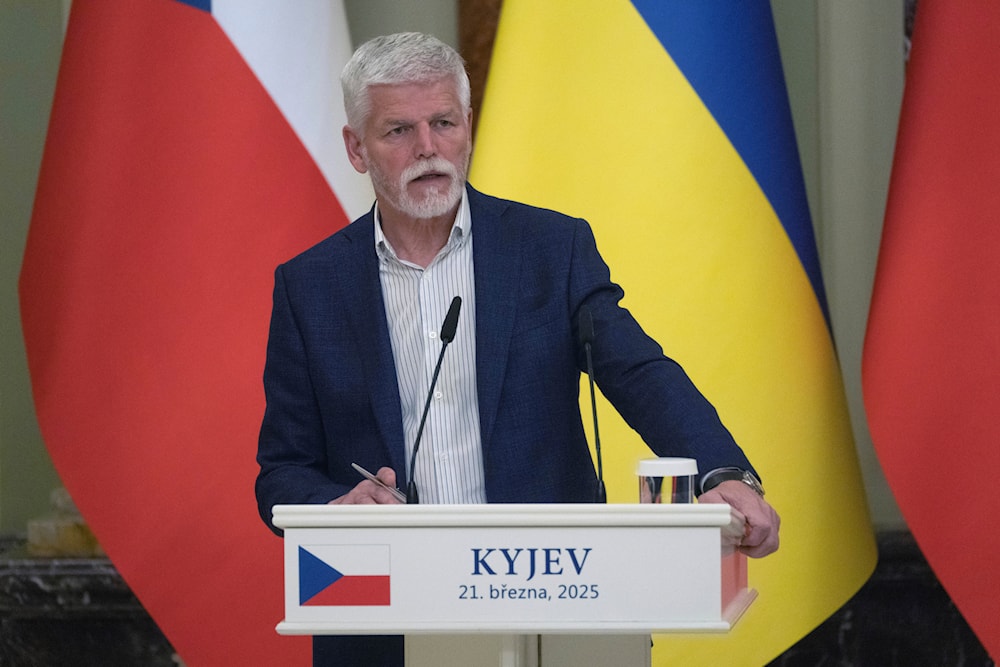Czech President admits Ukraine 2023 'counteroffensive' was doomed
Petr Pavel stresses that Kiev lacked the necessary manpower to effectively fight the Russian forces.
-

Czech Rebublic's President Petr Pavel speak during joint press conference with Ukrainian President Volodymyr Zelensky in Kiev, Ukraine, on March 21, 2025. (AP).
Czech President Petr Pavel stated that Ukraine’s highly anticipated 2023 "counteroffensive" against Russia was "doomed from the start."
In an interview with European Pravda published on Saturday, Pavel, a former senior military commander, cautioned that due to decreasing foreign aid and severe personnel shortages, Ukraine would be unable to reclaim any territory "without huge losses."
He said, "That is why my quite realistic assessment was that this conflict, without changing the [existing] parameters, will most probably end up with some compromise. And now we are heading to such a compromise."
Pavel further implied that Kiev's highly anticipated 2023 counteroffensive was bound to fail.
He said that even before the war started, Ukraine "was not well equipped to really succeed," adding that "for a successful offensive, the military theory says that you need a ratio of at least two - or preferably five - to one."
The former general contended that Kiev and its Western supporters must accept the reality that “part of the territory of Ukraine is and will for some time be temporarily occupied by Russia," emphasizing that the EU should not acknowledge Crimea or the Donbass regions as Russian territory.
Pavel further said that the EU must continue supporting Ukraine to prevent further territorial losses and to “create conditions for a ceasefire and subsequent peace.”
On that note, it is worth mentioning that Reuters revealed on Saturday a growing uncertainty and debate in Ukraine following its military withdrawal from Russia's Kursk region — a bold cross-border incursion that, while initially successful, has come at a heavy cost for some Ukrainian families and soldiers.
Ukraine's military General Staff stated that the offensive into Kursk aimed to increase pressure on Moscow, prevent cross-border attacks, and divert Russian forces from other fronts. The operation, they claimed, "achieved most of its goals."

 2 Min Read
2 Min Read









